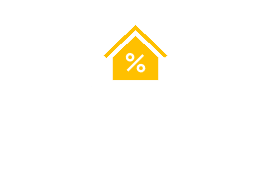Mortgage Articles
Simple Guides to Help You Get Your Mortgage
How Does Inflation Impact Interest Rates?
🗝️ Key Takeaways
- When inflation is high, mortgage rates tend to rise.
- If inflation slows down, mortgage rates might drop.
- Pay attention to monthly inflation reports—they help predict where rates are headed.
- Lock your mortgage rate if you think inflation will push rates up.
How Does Inflation Impact Interest Rates?
Thinking about buying a home? Then you’ve probably noticed people talking about “inflation” and “mortgage rates” in the same breath. But what does that actually mean for you?
Here’s the deal: Inflation is when prices go up for things like food, gas, or rent. To fight that, the Federal Reserve raises interest rates. When that happens, mortgage rates often climb too—making it more expensive to borrow money for a house.
Every month, the government puts out a report called the Consumer Price Index (CPI). It shows how fast prices are rising. You can visit the official CPI website to learn more, or check out the latest inflation report.
The newest numbers show inflation is slowing a bit. That’s good news! It means mortgage rates may stop going up, or even go down.
What Can You Do?
- If rates are going down, you might want to wait before locking in your mortgage.
- If rates are about to rise, locking in your rate now could save you money.
- Keep an eye on inflation news—it’s a sneak peek into where mortgage costs are heading.
Inflation news may sound boring or confusing, but it affects your wallet. The more you understand it, the better choices you can make when buying a home.
The mortgage rates displayed on this site are collected daily from publicly available sources provided by more than 600 lenders. Mortgage-Rates.ai does not receive compensation for listing these rates, and all rates are presented as published by the respective lenders. While every effort is made to ensure accuracy, the information may contain errors or omissions. Mortgage rates are highly dependent on an individual’s financial circumstances, credit profile, loan terms, and other factors. As such, the rates you are quoted directly by a lender may differ materially from the rates displayed here.
Users should contact lenders directly to obtain formal, binding loan offers. If you identify any discrepancies in the data or would like to have your institution’s rates included, please contact us at content@mortgage-rates.ai
All logos, trademarks, and brand names appearing on this website are the property of their respective owners.







About the author
mortgage-rates.ai